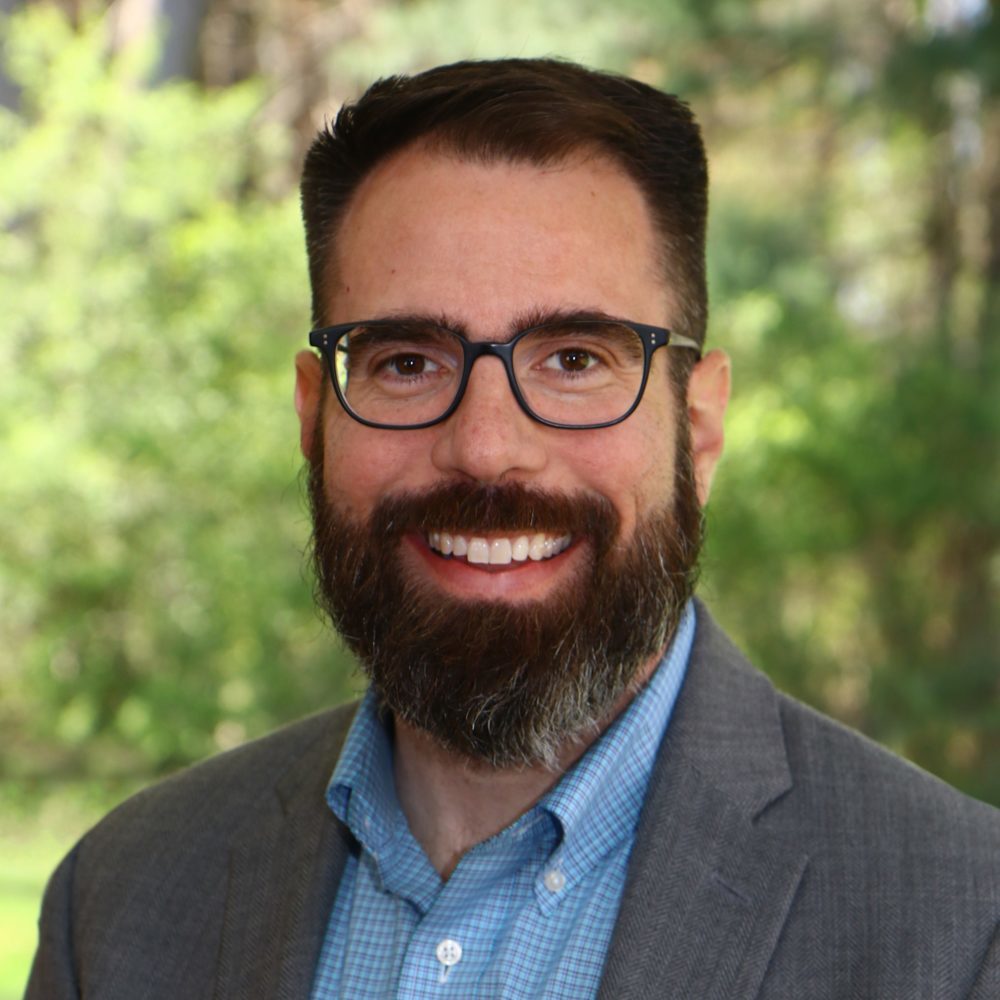Q&A & Five Unique Priorities
What a joy it is for Catholic Leadership Institute (CLI) to accompany dioceses in planning for the future!
The Diocese of Raleigh is a wonderful example of a partner CLI was blessed to accompany. As this diocese experiences beautiful growth, this process ensured that:
- Priests in the diocese were consulted and their voices heard in planning for the future. Over 100 priests participated in this effort!
- The bishop has clear direction, vision, and milestones to take action on five significant issues that are currently impacting and that will continue to impact the diocese in the future.
- There is clarity on what happens next and checkpoints down the road so that the diocese is poised to thrive and bring more souls to Christ.
Read below to learn what those five priorities are, discover what surprised CLI about this process, and to read a Q&A with a dedicated lay leader from the Diocese of Raleigh, Dr. Russ Elmayan, who co-chaired this special effort!
Strategy, Steering, & Surprising
Scroll to the bottom for a Q&A with Dr. Russ Elmayan
Strategy & Five Critical Priorities
Catholic Leadership Institute has been blessed to assist the Diocese of Raleigh with a presbyteral consultation, a nine-month process of getting feedback from priests of the diocese on five strategic issues identified by Bishop Luis Rafael Zarama. The process has included surveys, information sessions, real-time polling, and focus groups.
This effort arose from the leadership and vision of Bishop Zarama and his team, who approved a presbyteral consultation process to explore and address five challenges for the Diocese of Raleigh:
- Planning and funding for land acquisition for new parishes in growing areas.
- Models/approaches for starting new parishes, especially in light of constraints on the number of available priests.
- Models/approaches for meeting the needs of Catholics in rural parts of the diocese.
- Options for the Bishop’s Annual Appeal and its uses.
- The optimal role and functions of the diocese’s central office.
Steering with Commitment, Faith, & Leadership
A Steering Committee to oversee the process was appointed, chaired by the phenomenal leadership and dedication of Fr. Michael Burbeck and Dr. Russ Elmayan. Catholic Leadership Institute consultants Tom Lenz and Denise Ehlen walked alongside these leaders throughout the journey.
Fr. Michael shares: “From the beginning, CLI listened to us and shaped their support around our particular needs and desired outcomes. Tom was excellent in bringing relevant experience from elsewhere while still respecting the uniqueness of our diocese and of the set of questions we were trying to address.”
The stages of this consultation and accompaniment process included:
PRIEST SURVEY
114 priests participated in a survey to address concerns and questions and to shape the consultation and planning process.
INFORMATION SESSIONS
Armed with survey feedback, a series of virtual information sessions provided the participants with background information on the five focus areas. Offered in both English and in Spanish, 98 priests participated in at least one of the four sessions.
FOCUS GROUPS
Seven virtual focus groups (one in Spanish) with over 40 priests were conducted to explore the five strategic issues and identity a number of ways to address them. A separate focus group with the Bishop’s Executive Staff was also held.
PRIEST ASSEMBLY
The Diocesan Priest Assembly was the culminating event of the nine-month process. 105 priests and diocesan staff attended the event to listen, learn, pray, and plan. The agenda was organized with a mix of prayer, discussion of and feedback on the five issues, real-time polling, and social time. Challenges, next steps, and solutions were addressed to bring the five priorities from idea to implementation.
Surprise & Inspiration
CLI Leadership Consultant Tom Lenz felt a strong dedication and connection to this project and the wonderful people of the Diocese of Raleigh. When asked what surprised him about this process, Tom shared:
“It was encouraging how much meaningful and dedicated participation there was – we know that these participants are super busy and pulled in many directions with all kinds of demand on their time. I wondered: will people make the time? They did, with enthusiasm. There were many touch points over the course of several months. There was so much enthusiasm for offering opinions and ideas. I was grateful to see how much the people of Raleigh wanted this and were dedicated to making it happen.”
Russ Elmayan is one of these dedicated people! Below, Russ shares some feedback on his experience:
Q&A with Lay Leader, Dr. Russ Elmayan
Which of the five priority outcomes of your work inspires you most? What about it speaks to you?
For me, it would be the one about planning for future growth, and identifying areas where land needs to be purchased now for future parishes, while the land is still available and presumably more affordable than it will be in the future. It was a process that included demographic trends, various parish metrics, and consultation with priests. I liked the data-driven manner of providing actionable information to the priests, and I liked the tangible outcome, and I liked the ability to work collaboratively to creatively try to find a way to pay for all of this land at this time.
How was the exercise of listening so important to this endeavor?
We had excellent feedback and input from the priests at the Assembly. It is important to listen to them so that we can know the sense of the presbyterate, so that new and creative ideas can be surfaced, and so that we can continue to facilitate an environment of openness and cooperation. We have priests who have many gifts to share and much experience to share, and we need to make use of those gifts and that experience as we plan for the future.
What has your experience of working alongside CLI been like? What was something surprising that you learned in this process?
My experience of working alongside Tom Lenz was excellent. He did a great job keeping all of us on point, he understands how the Catholic Church works, and in the midst of all of the work we did over many months, he was enjoyable to work with and was a true colleague in the process,
I love that this effort was motivated by a desire to be strategic and one step ahead – as a diocese that is experiencing beautiful growth, why is this so important?
We are very fortunate to be in a growing diocese, but growth has its own set of challenges, and if we are not constantly looking ahead, we will be caught flat footed and not be in a place where we can adequately respond to the needs of the people in the diocese, both now and in the future. I am grateful that our Bishop initiated this process that I believe will be so helpful as we go forward. If we are not planning ahead, we will all be consumed with our day-to-day obligations, at the expense of setting things in place to meet the future needs of the Church.
What is your great hope for the Diocese of Raleigh as a result of your accompaniment from CLI?
My great hope is that the diocese has engaged the priests in the process, that the priests have felt consulted and heard in the process, and that this whole process will advance the collaboration between the priests and the Diocesan central office staff, all towards the service of the People of God. If the priests are invested in the identification of the issues and the possible solution to those issues, we can make great progress.
Please keep the Diocese of Raleigh in your prayers as they continue to propel their five priorities forward and as they continue to listen and care for their people!
Our President & CEO Daniel Cellucci's weekly email, the DIAL: Discerning Insights About Leadership.
CLI serves Church leaders, helping them rediscover their potential and forming them to be more intentional with those they serve.
CLI provides vision and hope about the future of the Church with a humble, yet strategic approach.



